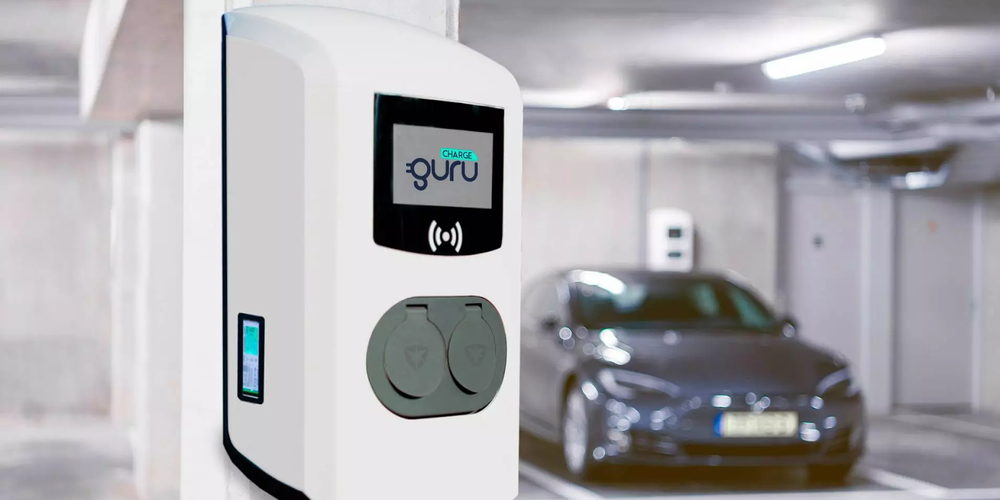With the objective of innovating within the charging segment, ChargeGuru developed a new proposal termed the “fully financed solution.”

This is ideal for situations where no party is willing to bear the investment in infrastructure.
“With this approach, we seek to address a key issue: the limited charging capacity in buildings that were not originally designed for electric vehicles,” explains the Country Manager Marcus Torres.
In a conversation with Mobility Portal Europe, he highlights: “We are the first company to introduce this model.”
The approach proposed by the firm operates under the concept of “charging as a service,” whereby ChargeGuru assumes the cost of the initial installation.
Meanwhile, users only pay for their consumption and the use of the charger, subscribing to the service according to their needs.
“The goal is to build a scalable infrastructure so that when residents decide to install a charger in their parking space, a shared infrastructure is already in place and ready for use,” Torres explains.
According to data from the National Statistics Institute (INE), approximately one-third of the country’s buildings were constructed between 1981 and 2000, with no provisions for charging solutions.
To tackle this challenge, Torres considers it essential to implement load balancing to prevent system overload, which commonly occurs when chargers are connected simultaneously without proper distribution.
“This is one of our main focuses at present, and it is offered free of charge, financed by us,” asserts the Country Manager.
And that is not all.
The company also undertakes the maintenance of the entire infrastructure, a crucial factor in condominiums where service management is often a complex process.
“With our model, ChargeGuru assumes that responsibility, ensuring that the chargers are always operational,” he emphasises.
Within this context, Torres notes that many users still consider public chargers their first option, when in reality, private charging “is more convenient and cost-effective.”
“For the majority of drivers, the most efficient solution is to ‘refuel’ at home or at work,” he explains.
ChargeGuru is committed to educating the market, reshaping this narrative to demonstrate that home charging can be accessible to all, regardless of the type of garage the customer owns.
“It is our responsibility to present them with a more cost-effective alternative, which simultaneously provides peace of mind to drivers, facilitating their transition to eMobility,” he states.
Automation as a new sales strategy
ChargeGuru is advancing in the digitalisation of the charger acquisition process through an autonomous purchasing system that enables customers to complete the entire procedure without intermediaries.
“We are close to achieving 100% automation in the provision of offers to residential customers through this autonomous process,” Torres remarks.
He elaborates: “The customer can receive a personalised offer within minutes, make the payment, and schedule the installation without requiring direct contact with an advisor.”
In this manner, the company attracts potential customers through two primary channels: direct requests from its website and partnerships with automotive manufacturers (OEMs).
The firm is an official installer for Tesla and Porsche, as well as for Stellantis and Volkswagen customers through their electric mobility companies, Free2move eSolutions and Moon, with plans to add another brand to its portfolio soon.
Additionally, for those who prefer personalised assistance, the platform offers the option to consult with an advisor.
ChargeGuru’s roadmap for 2025
It is worth noting that the company, originally from France, also operates in Spain, Italy, Germany, Belgium, and the United Kingdom.
Its core activity involves the installation and operation of chargers for both private customers and fleets.
In this regard, ChargeGuru offers charging solutions for all types of electric vehicle users.
Furthermore, ChargeGuru is implementing a 360° solution for fleets, which will include the deployment of charging solutions both at workplaces and at employees’ homes.
“This means that we can carry out installations in private residences, apartment buildings, and offices, as well as provide alternative charging solutions both at workplaces and at employees’ homes,” he states.
All these devices will be integrated into its platform to manage access, consumption, and, if requested by the client, perform remote maintenance.
“All these charging solutions will be integrated into ChargeGuru’s platform to manage access, consumption, and, if requested by the client, perform remote maintenance,” concludes Torres.








